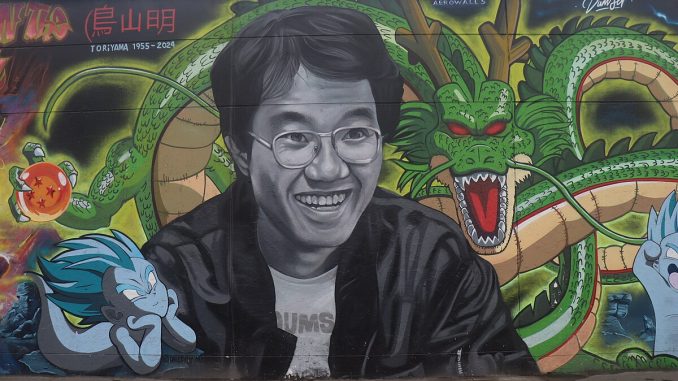
Akira Toriyama is widely recognized as the creative genius behind Dragon Ball, yet few examine the mind that shaped one of the most influential manga series of all time. By analyzing his personality through the lens of the MBTI (Myers-Briggs Type Indicator, a system used to understand personality types and cognitive patterns), we can gain insight into how his thinking may have influenced his creative decisions. While this is speculative, the patterns are consistent enough to offer a plausible profile.
Speculating Toriyama’s MBTI Personality Type
Based on interviews, work habits, and recurring themes in his stories, Akira Toriyama aligns closely with the ENTP personality type. ENTPs, also known as “The Debaters,” are defined by their dominant Extraverted Intuition (Ne), which drives them to explore ideas, patterns, and possibilities. Toriyama’s creativity, playful humor, and willingness to subvert expectations suggest a mind constantly scanning for connections and novel directions.
Key supporting traits:
- Innovative storytelling: Characters and plots often evolve unpredictably.
- Playful humor: Gags and absurd scenarios appear throughout his work.
- Adaptability: Shifts in narrative direction, such as Dragon Ball’s transition from adventure to martial arts tournament arcs, indicate flexible thinking.
Cognitive Functions and Dragon Ball
Breaking down Toriyama’s potential ENTP cognitive stack provides insight into how his personality could shape his creations:
- Dominant Ne (Extraverted Intuition): Fuels his exploration of ideas, unconventional characters, and creative world-building. Evident in the series’ sprawling universe, inventive techniques (Kamehameha, Spirit Bomb), and constant evolution of threats.
- Auxiliary Ti (Introverted Thinking): Provides an internal logic to the chaos, ensuring storylines, power scaling, and mechanics remain consistent despite whimsical creativity. For instance, energy levels, transformations, and combat techniques follow internally coherent rules, even when exaggerated.
- Tertiary Fe (Extraverted Feeling): Adds emotional resonance and relatability to his characters. Humor often relies on social interactions or comedic misunderstandings, balancing action with human moments.
- Inferior Si (Introverted Sensing): Occasionally manifests as repetition or nostalgia in story arcs, returning to familiar motifs, characters, or power-ups. While generally innovative, Toriyama demonstrates reverence for established ideas, ensuring fan familiarity.
Evidence from Dragon Ball
- Unpredictable creativity: Toriyama’s tendency to pivot the plot, such as Goku’s transition from boyhood adventures to martial arts tournaments, reflects strong Ne.
- Internal logic amid chaos: Despite humor and absurdity, energy attacks and fight mechanics are consistent, illustrating Ti moderation.
- Human connection: Comedic side plots, family dynamics, and moral themes reveal Fe’s influence.
- Recurring patterns: Transformations, sagas, and character archetypes reflect a subtle Si presence, providing narrative continuity.
Conclusion
Understanding Akira Toriyama through the lens of MBTI allows a deeper appreciation of Dragon Ball. His probable ENTP personality explains the balance between wild creativity and structured storytelling, while his cognitive functions illuminate why the series is both unpredictable and coherent.
By examining the mind behind the manga, fans can approach Dragon Ball with a new perspective—seeing it not just as an epic tale, but as a reflection of a unique cognitive framework at work.
A Personal Tribute
Akira Toriyama’s work has profoundly impacted my life. His stories, characters, and world-building ignited my imagination and introduced me to the rich world of anime. Dragon Ball was more than just entertainment; it was a gateway to a universe of creativity and inspiration. Toriyama’s ability to blend humor, action, and heart resonated deeply with me, shaping my childhood and fostering a lifelong love for anime.
Born on April 5, 1955, in Kiyosu, Aichi, Japan, Toriyama’s influence extended far beyond his creations. His unique storytelling and artistic style have left an indelible mark on the anime industry and on fans like myself. He passed away on March 1, 2024, at the age of 68. Rest in peace, Akira Toriyama. Your legacy lives on in every story, every character, and every fan whose life you touched.

Leave a Reply